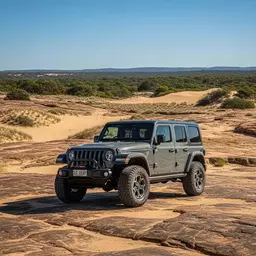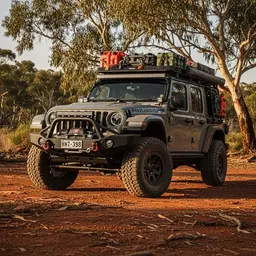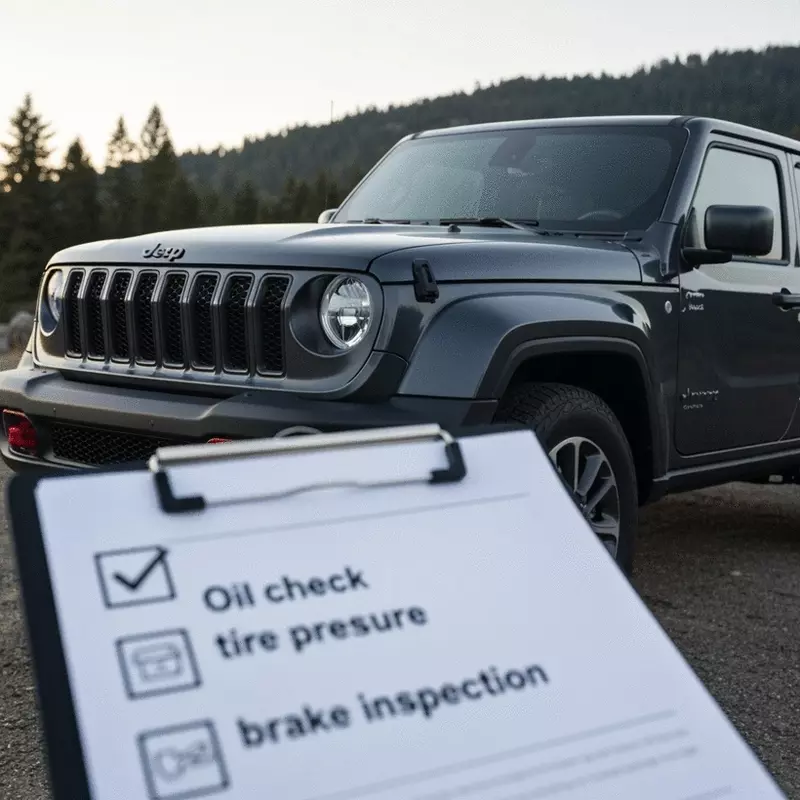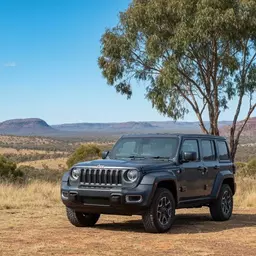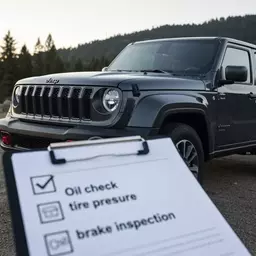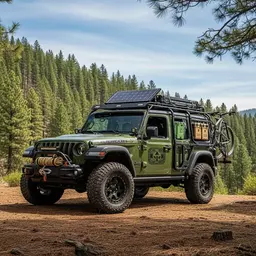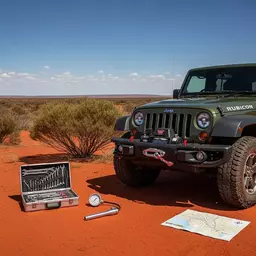Essential Maintenance for New Jeep Owners
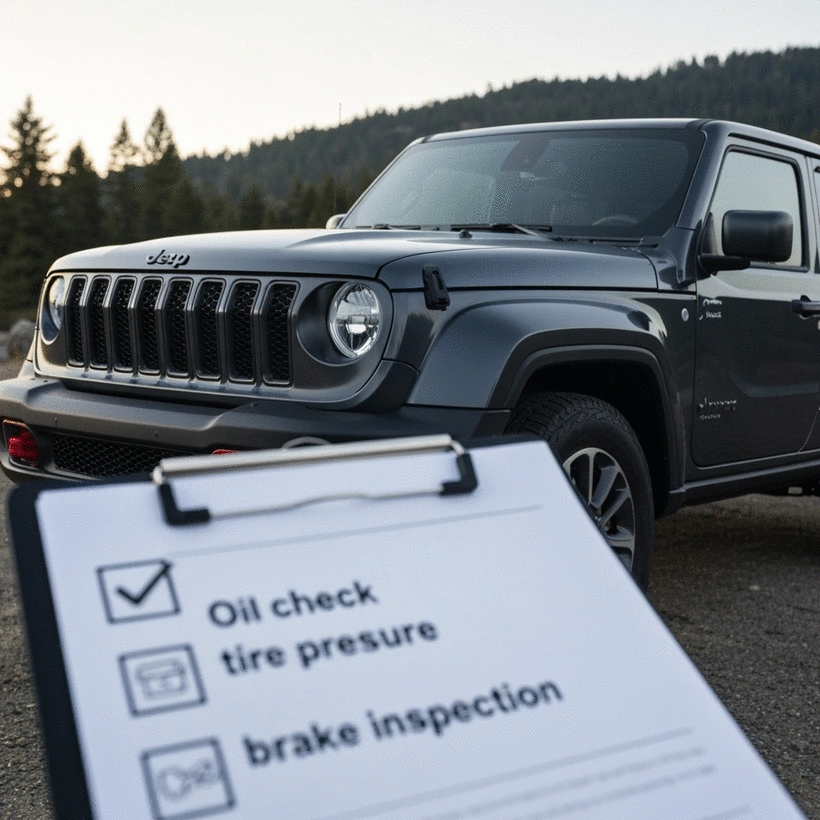
As you embark on your journey as a new Jeep owner, you hold the keys to a thrilling adventure. But are you aware that the secret to a smooth ride lies in one essential practice? Regular maintenance not only enhances your Jeep's performance but also ensures your safety on and off the road. Dive into these key insights that will keep your vehicle in top shape and ready for any terrain!
What You Will Learn
- Routine maintenance, including oil changes and fluid checks, maximizes your Jeep's performance and lifespan.
- Being proactive rather than reactive about maintenance prevents expensive repairs and ensures safety.
- Essential checks like brake inspections and tire rotations are critical for optimal driving performance and safety.
- Understanding your Jeep's unique maintenance needs empowers you as an owner and enhances your driving experience.
Key Preventative Maintenance Tasks for Jeep Owners
Ensuring your Jeep's longevity and performance through regular checks is paramount. Below is a visual guide to essential maintenance tasks that will help you maintain your vehicle's peak condition, especially if you're exploring Jeep maintenance tips for Australia.
Regular Oil Changes
Critical for engine health, ensuring smooth operation and preventing wear. Follow manufacturer recommendations.
- Follow manufacturer's recommendations
- Look for dirty oil signs
Fluid Checks
Beyond oil, regularly check coolant, brake, and transmission fluids for optimal performance and safety.
- Coolant prevents overheating
- Brake fluid for effective braking
Brake Inspections
Ensuring safety, check brake pads for wear and listen for unusual noises.
- Inspect pads every few months
- Consult professional if in doubt
Tire Rotations
Essential for even wear, improved handling, and extending tire life, especially for off-roaders.
- Promotes even tread wear
- Improves handling and traction
Filter Replacements
Clean air and cabin filters boost efficiency and air quality. Check every 15,000 kilometers.
- Check air filter regularly
- Consult owner's manual
Battery Checks
Prevent breakdowns by inspecting terminals, testing annually, and replacing old batteries promptly.
- Inspect terminals regularly
- Test battery health annually
Essential Preventative Maintenance Checks for New Jeep Owners
Owning a Jeep is an exhilarating adventure, but it also comes with responsibilities! Regular preventative maintenance is vital for ensuring your vehicle’s longevity and performance. Since Jeep models are built to tackle tough terrains, keeping up with maintenance is crucial for a smooth ride whether you're on the highway or hitting the trails.
As a new Jeep owner, it’s essential to understand the significance of these routine checks. Neglecting maintenance can lead to costly repairs and diminished performance. So let’s dive into the importance of Jeep maintenance and what every new owner should bear in mind, including details on a comprehensive Jeep maintenance schedule for 2025.
Understanding the Importance of Jeep Maintenance
Regular maintenance is not just about keeping your Jeep looking good; it's about ensuring it performs at its best! Maintenance tasks like oil changes, fluid checks, and tire rotations can significantly enhance the lifespan of your vehicle. Keeping up with these tasks helps prevent breakdowns and ensures you get the most out of your off-road adventures.
- Maximizes vehicle performance
- Reduces the risk of unexpected repairs
- Maintains resale value
Remember, a well-maintained Jeep can take you further and provide a more satisfying driving experience. So take pride in caring for your vehicle, and it will reward you with countless adventures!
What Every New Jeep Owner Should Know
When entering the world of Jeep ownership, it’s easy to fall prey to some common misconceptions. One of the biggest myths is that all maintenance can wait until there’s an obvious problem. This is simply not true! Regular checks can prevent issues before they escalate.
- Don’t wait for warning lights – be proactive!
- Understand the unique needs of your Jeep model
- Learn how to perform basic maintenance tasks
Being educated on these aspects not only helps keep your Jeep in top shape but also empowers you as an owner. At Jeep Insights, I believe that knowledge is your best tool for a successful Jeep journey!
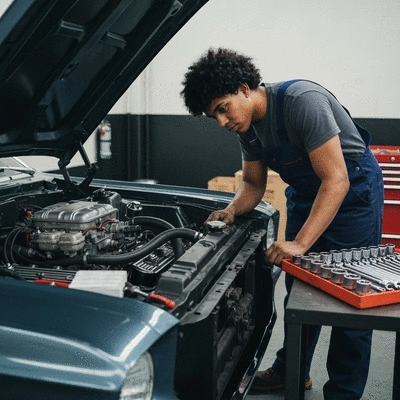
Key Preventative Maintenance Tasks for Your Jeep
Regular Oil Changes: Keeping Your Engine Healthy
Changing your oil regularly is one of the most critical tasks in vehicle maintenance. For different Jeep models, the oil type may vary, but generally, high-quality synthetic oil is recommended. Regular oil changes ensure that your engine runs smoothly and efficiently, preventing build-up and wear over time.
- Follow the manufacturer's recommendations
- Look for signs of dirty oil - dark and gritty texture
- Consider setting reminders for oil changes
Taking care of your Jeep’s engine means more reliable performance, especially when you’re tackling rugged landscapes!
Fluid Checks: More Than Just Oil
Besides engine oil, several other fluids in your Jeep require regular checks. These include coolant, brake fluid, and transmission fluid. Keeping an eye on these fluids is crucial, as they directly impact the performance and safety of your vehicle.
- Coolant keeps your engine from overheating
- Brake fluid is essential for effective braking
- Transmission fluid ensures smooth gear shifts
By regularly checking these fluids, you can enhance your Jeep's performance and keep your adventures on track!
Brake Inspections: Ensuring Safety on the Road
Your Jeep’s brakes are one of the most important safety features, so regular inspections are essential. Checking brake pads for wear can prevent more serious issues down the line. Look for signs like squeaking noises or reduced braking power.
- Inspect brake pads every few months
- Listen for unusual sounds when braking
- Consult a professional if in doubt
Staying on top of brake maintenance not only keeps you safe but also ensures that your Jeep is ready for any off-road excitement you might encounter!
Tire Rotations: Ensuring Even Wear and Tear
Regular tire rotations are essential for maintaining balanced wear on your tires. For Jeep owners, especially those who love to go off-road, this becomes even more crucial. Tires should be rotated every 5,000 to 7,500 kilometers, depending on your driving habits.
- Promotes even tread wear
- Improves handling and traction
- Extends the life of your tires
Taking the time to rotate your tires can lead to a smoother ride and a safer off-road experience!
Filter Replacements: A Breath of Fresh Air for Your Jeep
Replacing air and cabin filters is a simple yet effective way to keep your Jeep running efficiently. Clogged filters can inhibit airflow and lead to increased fuel consumption. Pay attention to signs of wear, such as reduced air quality inside the cabin.
- Check the air filter every 15,000 kilometers
- Replace cabin filters for improved air quality
- Consult your owner's manual for specific recommendations
A clean filter not only boosts performance but also enhances your driving comfort!
Battery Checks: Keeping Your Jeep Powered
Regular battery checks are crucial to avoid unexpected breakdowns. Look out for signs of corrosion, loose connections, or a battery that's more than three years old. A proactive check can save you from being stranded!
- Inspect battery terminals regularly
- Test battery health annually
- Replace old batteries promptly
Keeping your Jeep powered up ensures that you’re always ready for your next adventure!
Off-Road Maintenance Tips: Preparing for Adventure
If you're frequently off-roading, it's essential to adapt your maintenance routine to suit these adventures. Inspecting the undercarriage for dirt and debris after each off-road trip is crucial. Additionally, keep an eye on components like suspension, which may take a beating on rough terrain. For more detailed guidance, consider checking out essential Jeep care for Australians.
- Wash and inspect the undercarriage regularly
- Check for leaks or damage post-adventure
- Maintain tire pressure for off-road conditions
This proactive approach to off-road maintenance will enhance your Jeep's capability and reliability in the wild!
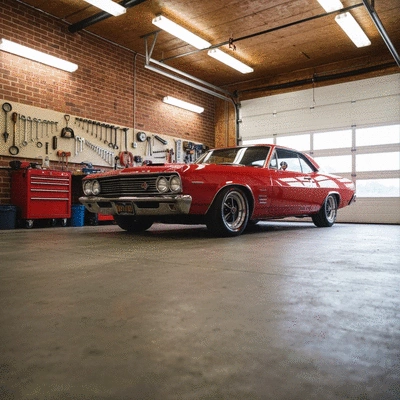
Frequently Asked Questions (FAQs)
Q1: Why is regular maintenance so important for a new Jeep owner?
A1: Regular maintenance maximizes your Jeep's performance and lifespan, prevents costly repairs, ensures safety on and off the road, and helps maintain its resale value.
Q2: What are the most critical preventative maintenance tasks for a Jeep?
A2: Key tasks include regular oil changes, fluid checks (coolant, brake, transmission), brake inspections, tire rotations, filter replacements (air and cabin), and battery checks.
Q3: How often should I change my Jeep's oil?
A3: Always follow the manufacturer's recommendations for your specific Jeep model. Generally, high-quality synthetic oil is recommended, and you should look for signs of dirty oil.
Q4: Besides oil, what other fluids should I regularly check in my Jeep?
A4: You should regularly check coolant (to prevent overheating), brake fluid (for effective braking), and transmission fluid (for smooth gear shifts).
Q5: What special maintenance tips apply to Jeeps used for off-roading?
A5: For off-roaders, it's crucial to wash and inspect the undercarriage regularly, check for leaks or damage after each adventure, and maintain correct tire pressure for off-road conditions. Also, keep an eye on suspension components.
Pro Tip
To keep your Jeep in peak condition, consider maintaining a detailed maintenance log. Note down every service, inspection, and fluid change. This not only helps you stay on track with your routine checks but also boosts your vehicle’s resale value by providing potential buyers with a transparent service history.
Summarizing Key Maintenance Practices for Jeep Owners
As a proud Jeep owner, understanding the essence of preventative maintenance is crucial for keeping your vehicle in top shape. Regular maintenance not only enhances your Jeep's performance but also ensures your safety on and off the road. By paying attention to the vital checks we've discussed, you can significantly extend the lifespan of your Jeep and avoid unexpected issues down the line!
To recap, here are some key maintenance practices every Jeep enthusiast should prioritize:
- Regular oil changes to keep your engine running smoothly.
- Fluid checks that encompass coolant, brake, and transmission fluids.
- Brake inspections for optimal safety and performance.
- Tire rotations to ensure even wear and longevity.
- Filter replacements to maintain air quality and engine efficiency.
- Battery checks for reliable starts and electrical performance.
Implementing these practices not only enhances your driving experience but also contributes to a sustainable approach in caring for your Jeep. By taking charge of maintenance, you're not just a vehicle owner; you're a responsible adventurer ready to tackle any terrain!
Take Action: Your Jeep's Maintenance Journey Starts Here
Now that you have a solid understanding of essential maintenance tasks, it’s time to put this knowledge into action! Start by creating a personalized maintenance checklist that suits your Jeep model. Don’t hesitate to refer back to the guidelines we’ve laid out, ensuring you never miss a critical step in your Jeep's care routine.
If you're ever in doubt or feel more comfortable with a professional touch, consider reaching out to local service providers. A well-maintained Jeep is not just a joy to drive; it’s a ticket to endless adventures across Australia’s breathtaking landscapes! For resources or recommended service providers, check out our website, Jeep Insights, where we connect you with trusted experts eager to keep your Jeep adventure-ready!
Recap of Key Points
Here is a quick recap of the important points discussed in the article:
- Regular oil changes are vital for maintaining engine health.
- Consistent fluid checks, including coolant, brake, and transmission fluids, enhance performance and safety.
- Frequent brake inspections are crucial for ensuring safety on the road.
- Tire rotations promote even wear and extend tire life.
- Replacing air and cabin filters improves air quality and engine efficiency.
- Regular battery checks prevent unexpected breakdowns and ensure reliable starts.

